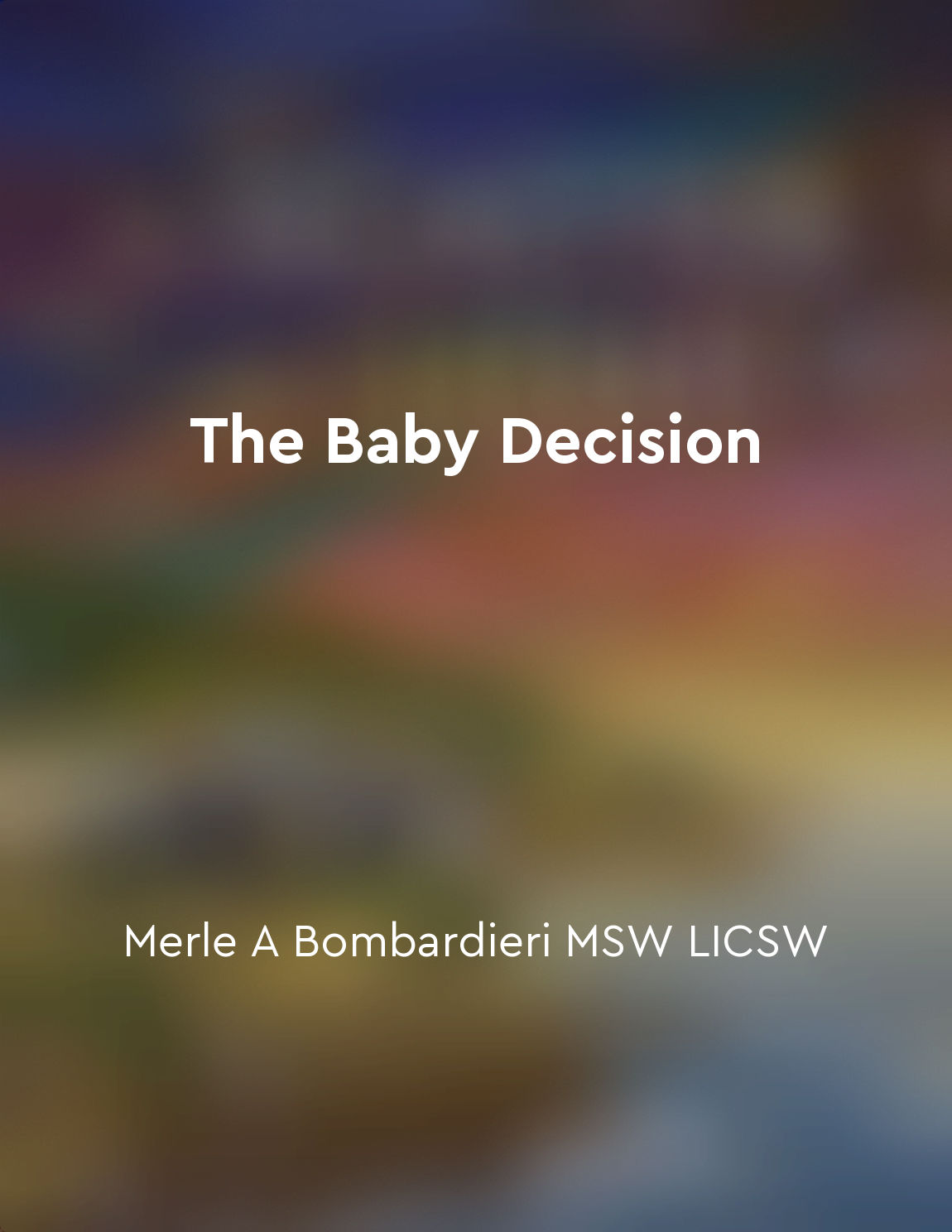Consider the environmental and societal implications of having a child from "summary" of The Baby Decision by Merle A Bombardieri MSW LICSW
When contemplating whether to have a child, it is essential to think beyond our own desires and consider the broader impact on the environment and society. Bringing a child into the world means adding to the consumption of natural resources and contributing to the generation of waste and pollution. The Earth is already facing significant environmental challenges, from climate change to biodiversity loss, and each new person born further strains our planet's capacity to sustain life. Moreover, having a child also has societal implications. In an overpopulated world, adding more people can exacerbate issues such as poverty, inequality, and overcrowding. Limited resources, such as food, water, and shelter, may become even scarcer as the population continues to grow. Additionally, the social and economic systems in place may not be equipped to support the needs of a growing population, leading to increased competition for jobs, education, and healthcare. Considering the environmental and societal implications of having a child requires us to think beyond our immediate desire for parenthood and reflect on the long-term consequences of our decision. It involves recognizing our responsibility to future generations and the importance of being mindful of the impact we have on the world around us. By taking a thoughtful and conscientious approach to the decision to have a child, we can contribute to a more sustainable and equitable future for all.Similar Posts

Uncertainty about having children is common
It is normal to feel uncertain when it comes to the decision of having children. This uncertainty can stem from a variety of so...

Allow yourself time to grieve any losses associated with your decision
It is important to acknowledge and honor any feelings of loss that may arise when making a decision, especially one as signific...
Don't blindly follow recommendations
When it comes to making decisions during pregnancy, it's important to remember that not all recommendations are created equal. ...

Embrace the uncertainty and imperfection of the decisionmaking process
It can be tempting to seek certainty and perfection in our decision-making process, especially when it comes to big life decisi...
Earth's future depends on human choices
The fate of our planet lies squarely in our hands. Our choices, actions, and decisions today will shape the future of Earth for...
